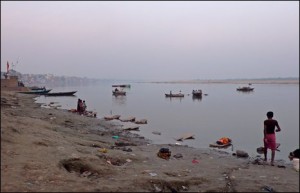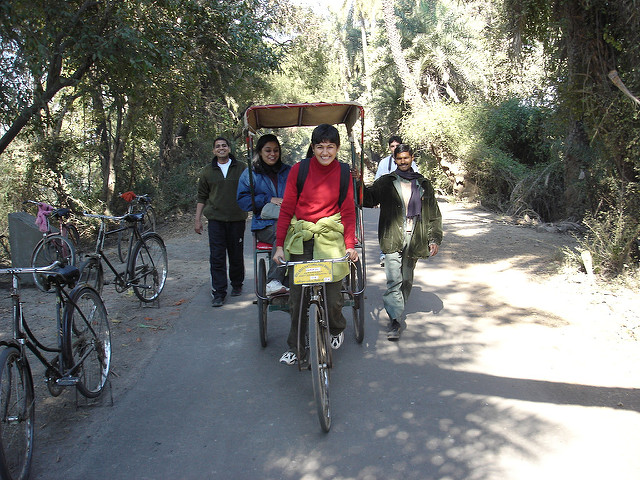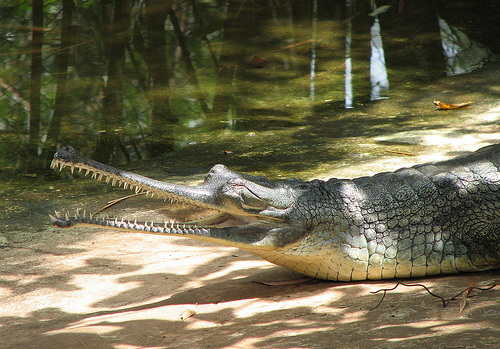 It is a known fact that the sacred Indian river that helps wash off the sins of thousands every day is itself getting murkier with sewage, animal carcass, and ashes. In order to flush out all the dirt out of Ganga, and breathe life into the aquatic species like the Ganga river dolphin, it is now experts from Berkshire who have been asked to help transform the river just like they transformed the Thames.
It is a known fact that the sacred Indian river that helps wash off the sins of thousands every day is itself getting murkier with sewage, animal carcass, and ashes. In order to flush out all the dirt out of Ganga, and breathe life into the aquatic species like the Ganga river dolphin, it is now experts from Berkshire who have been asked to help transform the river just like they transformed the Thames.
Thatcham charity the Thames River Restoration Trust (TRRT) is all set to work with small villages along the course of Ganga to teach villagers how to protect wildlife, keep Ganga clean and reduce sewage.
The charity has earmarked 200,000 pounds for the project.
The main purpose of the project will be to make conditions habitable for the freshwater animals and plants living in the river. These include endangered species like the Ganga river dolphin, freshwater turtles and gharial crocodiles.
They also plan to take action against over-fishing.
The TRRT has previously successfully turned the River Thames in UK from a ‘biologically dead’ river to one of the healthiest waterways in England. They plan to create the same magic in India.
Robert Oates, director of the TRRT charity, who has visited India to set up the project, said the Ganges was similar to how the Thames had been 150 years ago.
“India is going through a massive industrialisation like London was last century,” he said. “The government can’t build enough sewage plants to keep pace.”
Plan in Place
The charity has a solid plan in place and their target is to reach the poorest of people depending on the river for their livelihood. Presently the catch of big fish has gone down drastically from the river. Fishermen are complaining of getting only tiny fish. The charity therefore plans to dontate rope making machines to fishermen communities for an alternative source of livelihood.
They hope this will reduce the number of fishermen and thus give chance for the river to return to its normal balance where big fish will again catch enough prey and live healthy.
The fishermen will also be trained to deter poachers along the river.
Regarding the sewage problem Oates said that currently the sewage disposed in the river Ganga is not treated and therefore World Bank is lending India money to $1 billion to build treatment plants.
However the charity feels it is villagers who need to be taught to about proper sewage disposal.
“One of the things we will be demonstrating in the project is that it’s possible to involve local people by creating small wetlands and ponds to take waste from taps and toilets and help clean it up before it goes into the river,” he said.
It has set up friends-of-the-river groups at more than 20 villages along the Ganges
With UK’s help India will hopefully get rid of the sin of polluting Ganga.
Related Stories:
India Second in the List of Shark catching Nations
Are Marine Species inching towards Mass extinction?
Poachers kill Ganga River dolphin in Bihar
Article Reference: BBC






dear Atula,
it’ll be nice if you could write for our website too . It also deals with GAnga issues which might be close to your heart. PL do register and get involved with us.
Thank you Rashmi for visiting the site and your offer. I hope India’s endangered can be the additional platform needed to encourage more people to take note of the pollution of Ganga and help clean it. The river is home to many endangered species and there protection is a must.
Thanks Atula. I forgot to mention the site.
It is http://www.gangapedia.in developed by IIT Kanpur. Pl do visit us and be a part of Gangapedia family.